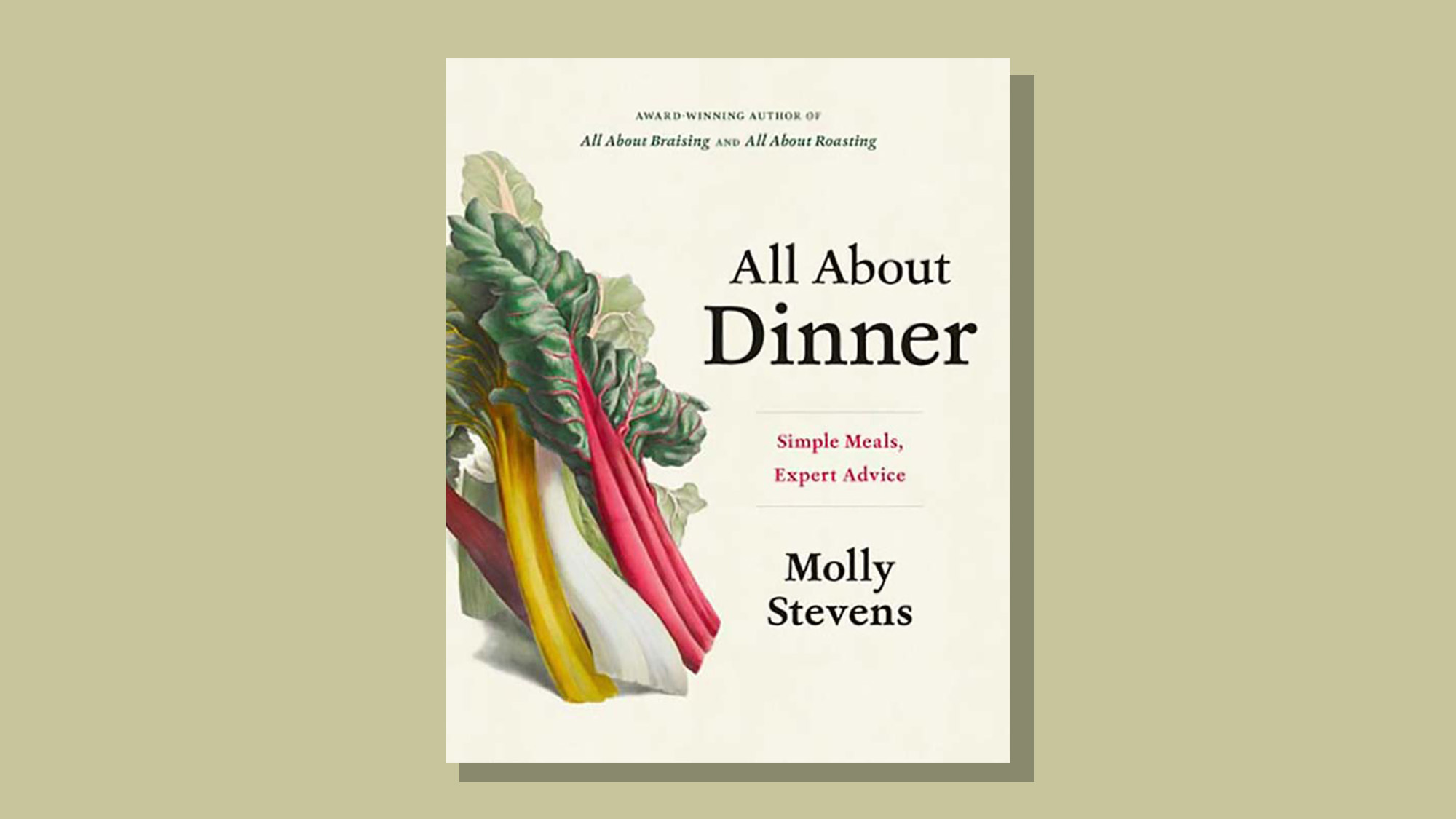One great cookbook: Molly Stevens' 'All About Dinner'
This book is a problem solver, whether you need inspiration, careful instruction of complex ideas or crave success with the ABCs of cooking dinner


A free daily email with the biggest news stories of the day – and the best features from TheWeek.com
You are now subscribed
Your newsletter sign-up was successful
When you make a purchase using links on our site, The Week may earn a commission. All reviews are written independently by our editorial team.
Dinner: Nearly everyone eats it; many people also cook it. But anyone who does prepare an evening time meal has at some point smacked their spatula headlong into a wall. Maybe a home cook wearies of the chicken breast pan-roasted into leathery oblivion four times a week. Perhaps their eyes slacken at the idea of yet another uninspired pantry pasta. Or maybe they have no notion of how to cook any single thing. Molly Stevens to the rescue.
Teacher, teach me how to feed myself and others
Stevens is a rare cookbook author. She is a teacher first, so her recipes are blueprints painted in fine-edged, robust detail. She also cooks at home. You can sense when reading her recipes that these are dishes she enjoys. The recipes are precise, functional and ardent, an uncommon combination.
The Week
Escape your echo chamber. Get the facts behind the news, plus analysis from multiple perspectives.

Sign up for The Week's Free Newsletters
From our morning news briefing to a weekly Good News Newsletter, get the best of The Week delivered directly to your inbox.
From our morning news briefing to a weekly Good News Newsletter, get the best of The Week delivered directly to your inbox.
So when Stevens, famed for her two previous single subject books, "All About Braising" and "All About Roasting," undertook dinner as her subsequent topic, knowing home cooks kvelled. "All About Dinner" is organized in nine chapters: Salads, Soups & Stews, Pasta & Grains, Fish, Poultry & Meat, Vegetables, Snacks & Sandwiches, Sweets and Scratch Basics.
Take the Salads chapter. There are appetizing recipes for such fresh, considered starters as Arugula Salad with Peaches, Sunflower Seeds and Basil Vinaigrette, Mushroom-Parsley Salad with Parmesan, and Crisp-Tender Lettuces with Maple-Ginger Vinaigrette. On the facing page for the latter is a miniature essay about mustard-jar vinaigrette. In the essay, Stevens presents you with a common refrigerator occurrence: a jar of Dijon mustard smeared with dregs. A leap of economy and creativity, guided by Stevens' assured hand, reveals how you can add a measure of vinegar to the jar, season with salt and pepper, shake like a dog after a rainstorm, add three times the volume of olive oil to vinegar, shake once again and meet your near-instant salad dressing for the next week. Top off as you deplete.
This is the kind of knowledge impartment that feels akin to wizardry until these kitchen tricks become, in time, second nature. Such is Stevens' gift — making the inscrutable accessible.
Recipes that are gently aspirational
Prickly techniques are also, in Stevens' able prose, unriddled. The way so many restaurants cook fish is an astonishment: crackling skin or crust; tender flesh; a lush pan sauce. The recipe for Sautéed Fish Fillets runs for a page and a half, during which Stevens explains to pat the thinnish fillets dry, season them with salt and pepper, heat the skillet well before you add the oil, dredge the fillets in rice flour for a light, golden crust, then add the fish and butter, spooning the fish with the browning butter as the fillets cook. A road map in which the destination is a seafood restaurant in your home kitchen.
A free daily email with the biggest news stories of the day – and the best features from TheWeek.com
Roast Pork Loin with Maple-Miso Glaze and Mustard-Pickled Raisins; Roasted Savoy Cabbage Wedges, Caesar-Style; Whole-Grain Waffles with Bacon and Parmesan: Across the book, Stevens stretches from the simple to the embellished. The recipes never feel extreme. Rather, they feel gently aspirational. For a confident cook, fresh takes on flavor are a respite from drudging repetition. For a tenderfoot home cook, such recipes enable the knife-wielding neophyte's capacity to dream big. In Stevens' world, cooking — and eating — well is a viable endgame for all.
Scott Hocker is an award-winning freelance writer and editor at The Week Digital. He has written food, travel, culture and lifestyle stories for local, national and international publications for more than 20 years. Scott also has more than 15 years of experience creating, implementing and managing content initiatives while working across departments to grow companies. His most recent editorial post was as editor-in-chief of Liquor.com. Previously, he was the editor-in-chief of Tasting Table and a senior editor at San Francisco magazine.
